CASE STUDY
Hear from a Peer: Creating a Frictionless Digital Experience for Your Customers
.jpg)
Brace
-
INDUSTRY
Finance
See Virtru in Action
Virtru Voice of the Customer (VVoC) Podcast
PODCAST DESCRIPTION:
When employing the highest protections of your organization’s data, one of the most important considerations is ease of use. If the security measures in place are cumbersome or not easy to use, its highly unlikely those protections will be adopted. In this podcast, Virtru brings back one of its previous employees, Susan Watkins, who is now the Director of Customer Success at Brace to chat with Virtru’s Brett McCrae, Senior Director of Customer Success. Susan shares how she manages data protection safeguards for sensitive customer data and how Brace works to ensure a frictionless digital experience for its customers.
Air Date: 12 January 2023
Transcript
[BRETT] Good afternoon, everyone. My name is Brett McCrae. I'm the senior director of customer success at Virtru. And until today's installation of our voice to the customer series, I'm excited to speak with an old Virtru colleague, Susan Watkins, who is now the Director of Customer Success at Brace with very different missions and customer bases, Virtru and Brace are actually very similar at their cores. Both are SaaS companies seeking to make life easier by deploying solutions that solve real world problems. Do not complicate the customer experience. Brace is the SaaS company in the mortgage servicing industry whose mission is to unlock financial performance throughout the mortgage process by leveraging modern infrastructure communication and design in an end to end secure, compliant and configurable cloud experience, resulting in an efficient and transparent solution that enables actionable insights for all. Brace relies on Virtru's easy to use data encryption solution equipped with the highest protection and controls to transmit sensitive emails and files that contain customer data. In this podcast episode, we'll discuss how Brace manages data protection safeguards for sensitive customer data, and also how brace works to ensure a frictionless digital experience for its customers. Susan, Thanks so much for joining me today. How are you?
[SUSAN] Well, I am doing well and I am delighted to be here. It's great to see you.
[BRETT] Thanks so much for joining me today. I know, you know, to kick us off, Susan. I know I just gave a little bit of an overview about brace. But from your own words, you know, from the brace perspective, what exactly do you do?
[SUSAN] Yes so two things. I work with customers. So as the Director of Customer Success, I'm making sure that our customers are happy with our products or service, things like that. And what I want to do is explain a little bit about mortgage servicing because it is not as well-known vertical in the FinTech world. So mortgages, as you know, is when you buy a kind of a property and servicing mortgage servicers are the individuals that will or the entities that will manage the mortgage. So an example is, Brett, you decide to buy a property, you go to a mortgage originator or maybe a loan officer and you say, hey, I'd like to buy a place. And they say, OK, Brett, based on your numbers, here's kind of a mortgage we're going to offer you. We say, that's perfect. I love it. You find the house, you purchase it, you move in, and now you begin paying your mortgage. Once you begin paying your mortgage, your mortgage is often transferred to a mortgage servicer. That servicer is going to help you do all things mortgage-related. So they're going to send you your mortgage statements like how much you owe. They're going to collect taxes and escrow and they're going to be the people that you reach out to when you have trouble paying your mortgage. So, Brace, we provide software for mortgage servicers, specifically what's called loss mitigation. So that's just fancy terminology for if you have trouble paying your mortgage, you'll then kind of talk to the loss mitigation team and the services we provide are kind of within that realm.
[BRETT] Awesome. Thanks for that overview. That's really helpful. Now, Susan, you know, mortgages are something that a lot of people know a little bit about, right? A lot of folks have them. But remind, you know, for those of us in the conversation that are not used to talking about mortgages every day, remind me what we put on our mortgage from. There's a lot of sensitive data there. Could you talk a little bit about that and what sort of information someone like me is providing to a mortgage servicer? You know, when I go about that.
[SUSAN] There's probably very few times in your life you put all of this sensitive information in one spot on. You know, when you go to apply for a mortgage or you have a mortgage, you can also. Basically, anything PII gets by is kind of connected to a mortgage. So we're talking names address. We're talking, you know, Social Security. We don't deal too much with that. But that's definitely connected to your mortgage. We're talking about phone numbers, amount of mortgages. You know, how much someone owe someone's paid, their financial situation, what their income assets and expenses are at the moment, documentation to kind of prove certain things or serve as backup for their situation they're in. So a lot of very sensitive information is connected to a mortgage. And kind of follows you through with the mortgage.
[BRETT] Awesome.Thanks for that. That reminder and sort of setting that baseline for us. Now, Susan, you know, we talk a lot about internally at Virtru, we talk about this with our customers, of which you are one that, you know, one of the things that is our mission and Virtru is to help people share sensitive data when they need to. That could be an individual. It could be a business. There's a lot of reasons to do that, and that's really core to what Brace is doing. Could you talk a little bit about why you need that information that you just described, you know, to move around in order for, you know, Brace to conduct its business, but also to help your customers themselves?
[SUSAN] Yes so there's a number of examples I can give about how we use Virtru in order to efficiently do business. An example that happens actually just happened yesterday, is our platform is a platform that a homeowner or a borrower will go to and answer a bunch of questions if they have trouble paying their mortgage. It's kind of like, what's going on? What's your current financial situation like? And we gather all this information from the end user, the borrower. We package it up nicely. And then we send it off to the servicer. So that they can review it, make sure the boxes are checked, make sure that the answers kind of make sense on the form, and then kind of help the borrower through with the solution. So what we do is we send that documentation over to the servicer, but occasionally there's like a blip in the system, and the document, for whatever reason, doesn't quite make it over to the servicer. So I get an alert and I see that it didn't quite make it over there. And so then through Virtru, I can take that document, very sensitive information, encrypted, and send it via email to the servicers. So that they can begin processing it. Now, what a lot of people might not realize is or maybe they do, but we're in a very federally regulated industry of mortgages. And so one of the more aggressive regulations or timelines that a servicer needs to make is they need to acknowledge that they have received this information from a homeowner within five days of receipt. So if it doesn't quite make it over to the servicer, it is my duty to get that servicer, the documentation as quickly as possible so they can meet their kind of five day notification window. And as you can imagine, if you're using a very cumbersome encryption tool, then it's going to be challenging for me to get the information, challenging for me to get it to my client, my servicer, and then for them to pull it down and actually acknowledge it. So, we the fact that we have the email plug in, it just makes my life so much easier. And it's helping my client because they're getting the information they need, helping the end user, the borrower, because they're going to get a solution faster, because I can do things kind of on the whim. As soon as I get the error message, I personally I'll get that document through an encrypted email, send it to my servicer and it's like no issue. We can continue business. The homeowner will get the help that they need as fast as they can get it. And I don't have to worry about cumbersome technology that blocks me, that blocks my client, and inevitably it impacts the end user or the homeowner. So I love the plug-in. Big plug-ins fans over here.
[BRETT] Thanks, Susan. That's great to hear. And I think, you know, normally in our voice of the customer series, we talk to a lot of security and IT professionals and you know, you and I, are working in the SaaS industry. We're working in that space in a lot of ways. But you know, we're on to a slightly different end of that. On the Customer Success side where our job is making things easier on our customers be it Virtru's, be it Brace's, so on and so forth. And you know what you just said, it reminds me of something that we'll hear from time to time, from our from, you know, sometimes from customers, but a lot of times from prospects that are considering Virtru or any other, you know, encryption or data security solution. And so we don't send anything sensitive via email. We have a company policy that says we don't do that. And I always know, I think that statement is always made with the best intentions. But I also think what you just highlighted is the reality of business and at the speed at which business needs to happen today in order for a company to win, to be successful, to grow, whatever the company goal may be, a lot of times you have to. And you know, A lot of when I get that statement. Oh, we don't do that. We don't send sensitive information via email. What always pops into my head and there's obviously different ways to work on this with whoever we're talking to is. Well, reality is you probably are. Or somebody in your organization probably is. It's just a question of does security and IT know about it? And two, are there proper controls around that communication that's happening anyway? I don't know if you have any comment on that, but that's what popped into mind when I just heard you know, that example of what happened the other day.
[SUSAN] Well, Yeah. And I think also I can't stress enough the ease of the use of using tools. I mean, as we know, that often has a huge correlation between whether or not a tool will be successful, how easy it is to use, the easier it is, the more it's going to be used. And because we're in this very regulated industry, you know, sometimes clients will have to send me emails, secure emails that they are using maybe a different competitor or a different type of encryption. And the amount of time it takes me to access that, you know, I have to have a login. I have to go find my password. It is so cumbersome to do. Like another example is I had a client send me a list of loans that they wanted me to look up some information on. OK, great. I go into their very cumbersome encryption. Finally, I get the list. I kind of give them the information they need. And then a few weeks later, they wanted us to reference or had some questions about that kind of original list. So I tried to go back and access that email and it wasn't available and they couldn't access it either. And so we weren't even really sure what the original list had. They had to send a new email to with this information again. And we were kind of guessing what was in that expired email. And I was using Virtru and I revoked something. I can un-revoke it so we can just say, oh, here was the original list, Here's the original message that we had. So it's just so much easier to use. And because of that, it allows me to do my job and it allows me to make sure the end user, that homeowner, the person that we're advocating for, the person I'm trying to help, isn't delayed from getting the resource and help that they need. So the ease of use is, you know, I'm a repeating record here, but it just allows me to do my job efficiently and effectively and that makes me feel good, you know. So.
[BRETT] Yeah, no, that I mean, look, that's great to hear. And I think that you bring up a really good point. And again, as I mentioned before, we're almost we talk to a lot of IT and security professionals. This is the first time, I think in our Voice of the Customer Series. We've talked to somebody in the customer success space, but. You know how important to have a friction, how important it is to have this little friction as possible in any customer interaction. And really, you know, the clear, clear, clear line between that hopefully frictionless experience and really ultimately, you know, the success of a particular business, their interactions with their customers. You know, I think of like as I think of moving secure data around or moving, I should say, moving data around in a secure way. That's a much more accurate way of putting it. There's a lot of reasons for that. Right you mentioned the compliance and regulatory regimes. And that Brace falls under. But I think oftentimes people forget that, look, it's just the right thing to do. And, you know, we talk a lot about it at Virtu, and we're starting to hear it come up more and more in the market, be it, you know, NIST or, you know, some of the analyst firms out there that they're really data-centric security and especially data-centric security that's easy is becoming more and more of a demand from consumers. You know, look at Apple just introducing their end to end encryption for iCloud and things like that. Look, if it's not easy, it's not going to get used. If it's not going to get used, it doesn't do you any good. And it doesn't help your business. Do the things that it needs to do to stay compliant, to be fast and agile and ultimately effective at delivering, you know, the solution that you provide to your customers.
[SUSAN] Yeah and I think also because we are in this environment, in this vertical that has all the sensitive information, every time we kind of get graded as a vendor, we do great because we have all these tools in place that ensure that we are playing by the rules and we're doing right by the customer and we're making sure that secure data that needs to be secured is secured. So that's another reason that, you know, to advocate for this kind of ease of use is that when we go through the checklist, we're all good. We come out clean, we got the tools, we got the things that we need. And I think our clients appreciate that, too. We're kind of like one less thing they have to worry about. They know that when they're communicating with us, we're following the rules and we recognize the importance of everything. So it I think, you know, just helps us be better partners, I think, with our clients to make sure that we're on the same page. We're protecting what you want us to protect. We'll always make sure that's going to happen. Even sometimes, you know, when I'm typing out an email, we have some of those rules set up for keyword triggers and we'll just be typing out the words in the email like PII and it'll say, hey, you know, did you know this? You have the word PII in there, and I'm like, oh, 'Thank you for catching that'. We're all good. I'm just having the conversation there actually isn't tangible PII here, but even stuff like that, I makes me thankful and feel good that it's still running in the background. It's still making sure that we are staying secure and that is a benefit that our clients appreciate as well.
[BRETT]Yeah, I think that's great. And I mean, I don't mean to put words in your mouth, but but tell me if the statement it sounds like this statement might summarize what you said that, you know, even on the Customer Success side where, you know, maybe, you know, we're always thinking about security. But, we're not on the security team necessarily.
[SUSAN] Right. Yes.
[BRETT] And our job, is to a lot of times to send information externally. Right? or receive sensitive information internally. But what I'm hearing from you is that, you know, even on the CS Side, if you can put security and ease of use together, that's a real competitive differentiator.
[SUSAN] Yeah and I think it gives clients confidence in us that we are, you know, thinking about the big picture. We do one thing really well. It's loss mitigation software with that. But we also consider the full picture, like the information that's coming in, the borrower experience, how we're going to get that information safely, kind of in a one off channel if needed. So it's all a big picture. But yeah, we, we'd like to advertise that, you know, it's part it's like a bell and whistle for us. It's not like a main feature, but oh, by the way, we are super. Aware of this and compliant always.
[BRETT] Now, that's great. Susan, I'd like to. You know, as we think about wrapping up this conversation, I want to ask you a two part question. And the first part of it is, you know, maybe to summarize some of bits and pieces of what you said already, but, you know, you Director of Customer Success at Brace in doing what you do. Could you summarize the impact that. You know, just having a solution to allow you to send some of the most sensitive information that people might have securely and quickly has had on you doing your job?
[SUSAN] Honestly, it is successful. It gives me confidence that I can do what I need to do. It helps me feel good that I'm making sure the homeowner is getting their information to the right place as quickly as possible. Even if there is a blip in the system, it it does impact my role, like I said, and success criteria because, you know, a lot of times during the day when we're dealing with a lot of end users, sometimes you get kind of lost and you just start to look at numbers and things like that. But I'm dealing with homeowners. I'm dealing with people who are having trouble paying their mortgage. And every piece of information counts and every piece of information is sensitive. And so making sure I can get that one person, I can make sure that one person continues down the right path, gives me peace of mind and makes me feel good. So, it I'm kind of going all over the place to answer your question, Brett. But I would say some of the key words that come to mind are like confidence, success, peace of mind, helping me do my job and feel good about doing the right thing.
[BRETT] So and on a similar note, but just a little bit of a different twist on that same question. You know at Virtru, we're talking to CISOs, Directors of IT, whatever IT Infrastructure, security folks all the time. And I think, you know, they have a lot of they have a very difficult job. And there for a lot of different reasons. But I think they have a really difficult job, particularly when it comes to evaluating software, be it Virtru or anything else. You know, if you in the position that you're in on the Customer Success side of things or to speak to them directly because I mean, quite frankly, that's a big part of our audience about, you know, when they're looking at software, when they're looking at, you know, a new purchase for whatever the business reason is, you know, what should they be thinking about that maybe they don't every day or it might be a little bit different for them?
[SUSAN] Yeah, I think we mention this one for ease of use is critical, but also kind of making it human proof. So there are going to be times where people are, like I said, in the thick of their work. They're doing stuff. And what I love about Virtru is you can set up those rules so that it can like pop up and say, hey, there's, you know, this is your tech. You told me to remind you if this keyword or this kind of variable in the email is here and it is like, what do you want to do about it? You want encrypted, Do you want to send it? That, I think is also key because it reminds us about things that maybe have slipped our minds. So, I mean, even before that ease of use, if it's not easy to use, if there is effort required to use it, that will significantly reduce the number of people and the times that they use it. Like hard stuff that's across the board that's not specific to Virtru. But because Virtru is so easy to use, then theoretically stuff is going to actually be secured and used, because it's a no brainer. And then the second is kind of putting in those insurance policies. So that even if someone is brand new to the company, maybe they don't know a thing about securing PII. The organization can set up the tool so that you are not reliant exclusively on the human being to secure the appropriate things. You can have the system kind of fall back and have a policy where they are covered, even if they forgot to or didn't know they had to. So those are the two things.
[BRETT] Awesome well, Susan, Thank you so much for those tips. Also just for joining me today and sharing your perspective. And we really appreciate it. It's always great for us to be able to speak to people in a really wide range of roles and to hear from somebody on the Customer Success side and and how, you know, and a true end user of the tool, a heavy user of the tool, you know, brings a little bit of a fresh and different perspective than some of the ones we get more often in the security and IT world. So thank you so much for joining me today. I really appreciate it. And best of luck to you and Brace.
[SUSAN] Thank you, Brett. Always a pleasure. We love Virtru and thank you. Talk to you soon!
[BRETT] Awesome thanks, Susan. We appreciate it.
Related Resources
Get expert insights on how to address your data protection challenges
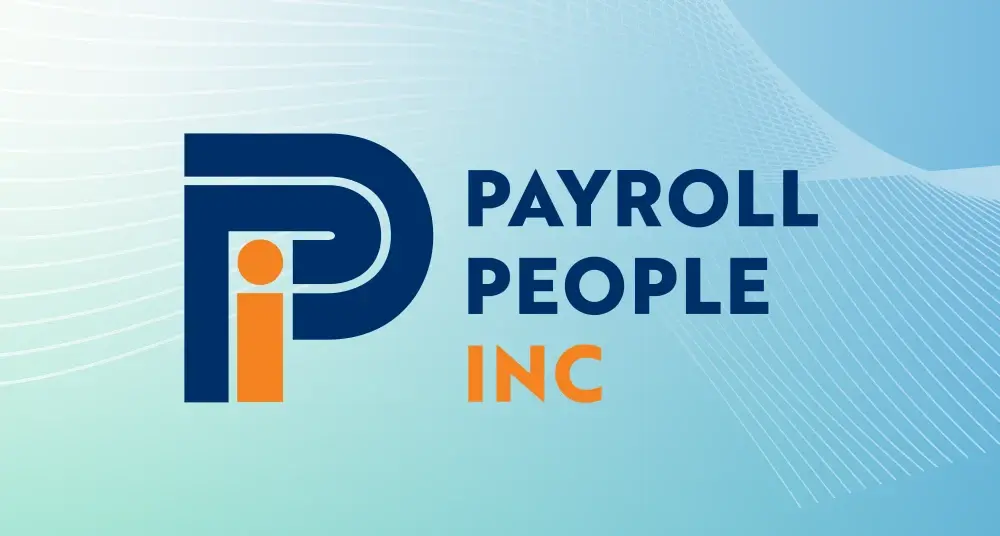
Power to the Payroll People: Virtru Simplifies Tax and Finance Workflows in a Hybrid Microsoft Environment
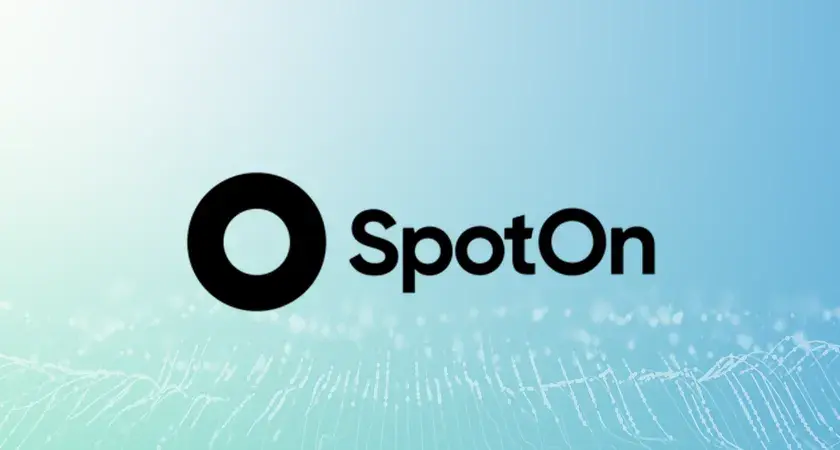
“Secure By Nature” — Why SpotOn Uses Virtru for Simple Data Security
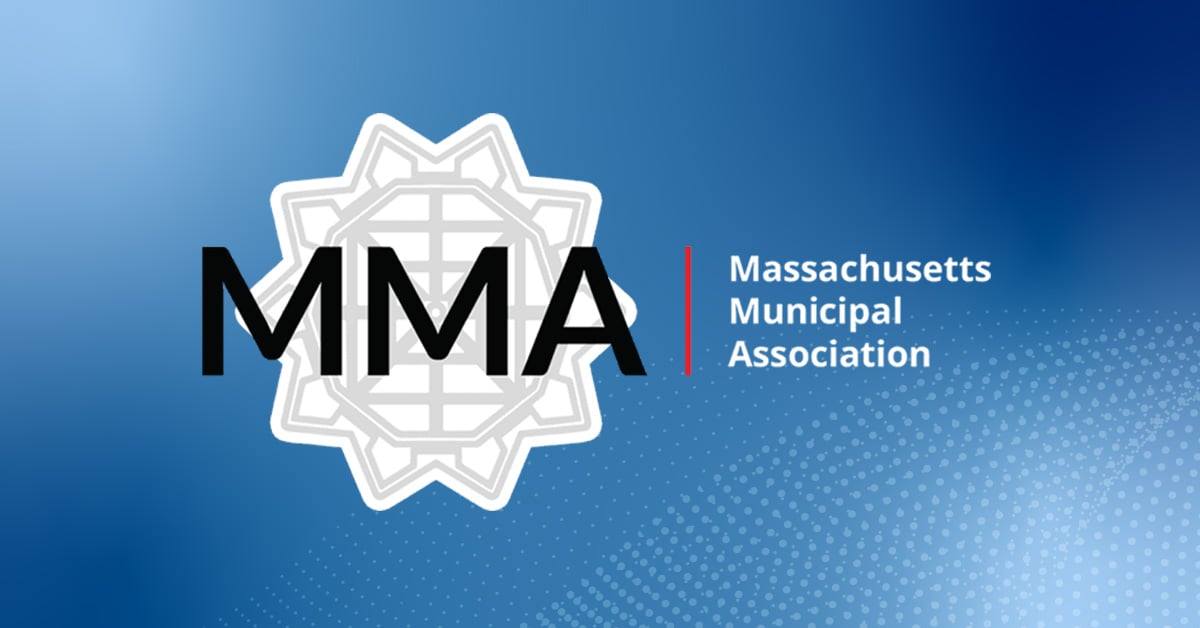
The Massachusetts Municipal Association Uses Virtru to Support HIPAA, SOX and PCI-DSS Compliance
/Total%20HIPAA%20Case%20Study.webp)
Total HIPAA Uses Virtru for Proven, Persistent Control of PHI

Quick Adoption, Easy Encryption: Hansol Financial & Insurance Marketing Chose Virtru for Gmail
/Fintech%20Startup.webp)
FinTech Platform Uses Virtru for No-Worry, No-Hassle Data Security

From Voltage to Virtru: Enhancing Security Across 40+ Applications for a Leading Credit Reporting Agency

How Williams College Safeguards Financial Information for Students and Alumni
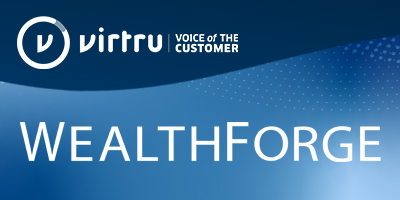
Virtru Voice of the Customer: Achieving Email Security and Compliance with SEC Rule 17a-4
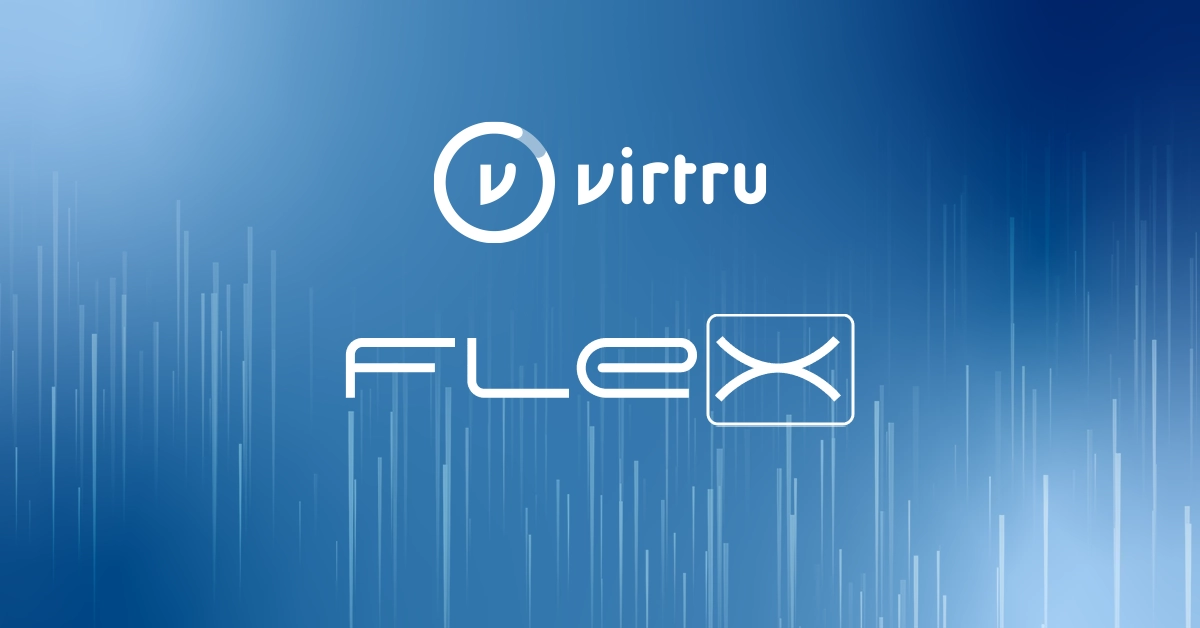
How FLEX Secures Sensitive Credit Union Data Across Expanding Teams

WealthForge Strengthens Trustworthy Communications and SEC Compliance with Virtru

Platte Valley Bank Simplifies Compliance and Fosters Trust with Secure Share
Book a Demo
Become a Partner
Contact us to learn more about our partnership opportunities.